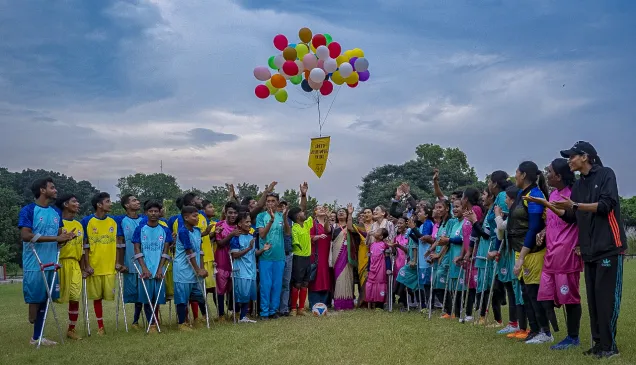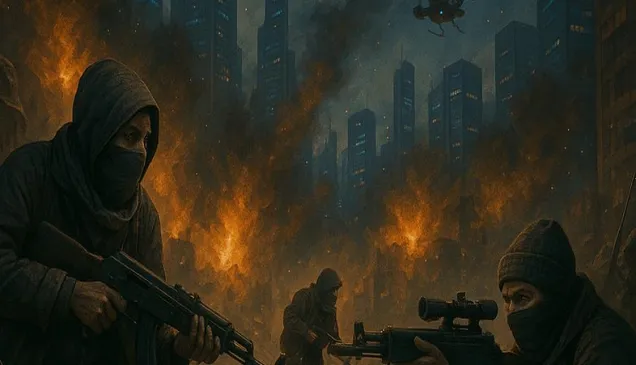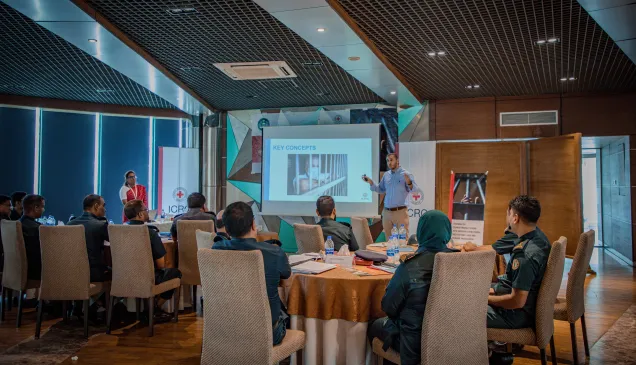Bangladesh: Increasing safe access for National Society staff and volunteers
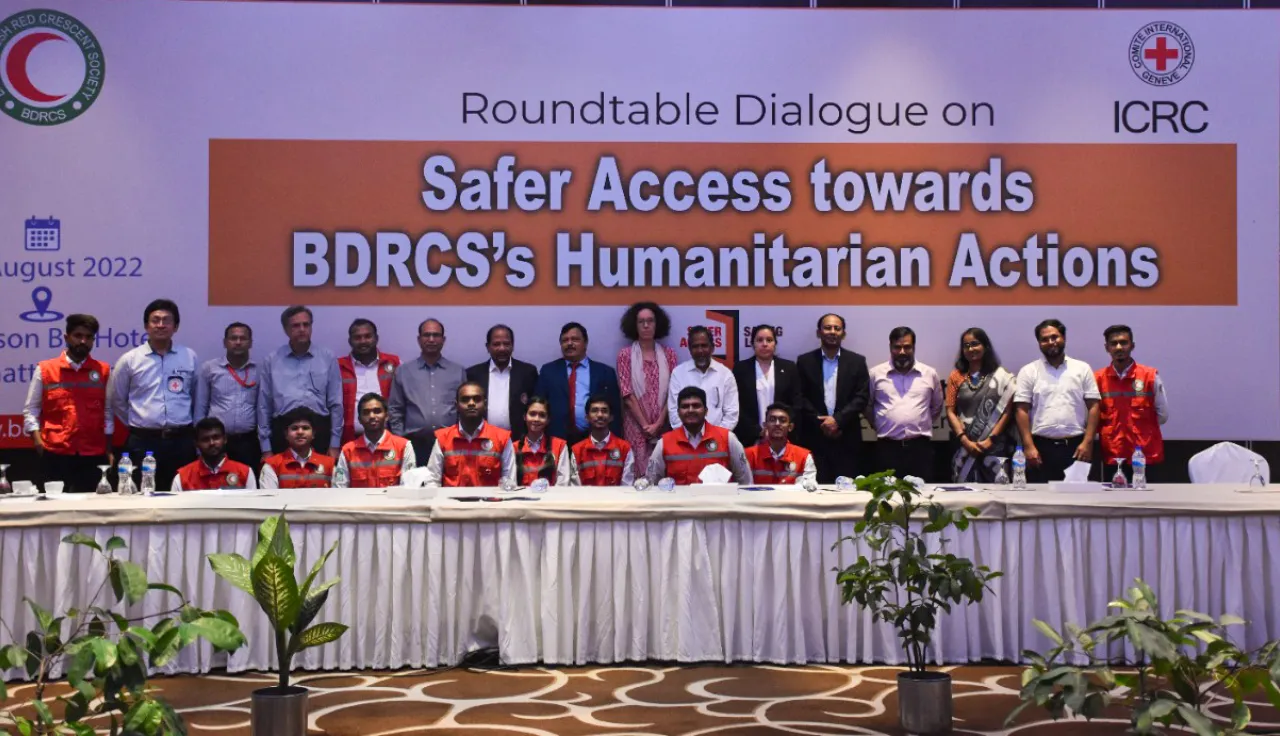
The International Committee of the Red Cross (ICRC) and the Bangladesh Red Crescent Society (BDRCS) jointly organized a round-table dialogue in Chattogram on 22 August that focused on the importance of a safe working environment for staff and volunteers of the National Society. The round table provided a platform to discuss how to improve safer access for staff and volunteers as well as identify any barriers to it.
The BDRCS explained its mandate, legal base, role as auxiliary to the government and the International Red Cross and Red Crescent Movement's seven Fundamental Principles. The BDRCS also presented key elements of the Safer Access Framework to raise awareness among participants and seek their support. The ICRC took the opportunity to highlight its activities in Bangladesh and emphasize its commitment to continue working with the BDRCS to help vulnerable communities.
The BDRCS is one of the important first responders in many humanitarian crises, including natural disasters, emergencies and violence, with the mandate to act as an independent, neutral and impartial body to reduce the suffering of people in need through safer access and acceptance in the communities. The ICRC introduced the Safer Access Framework in 2002–03 in consultation with the International Federation of Red Cross and Red Crescent Societies and National Societies around the world.
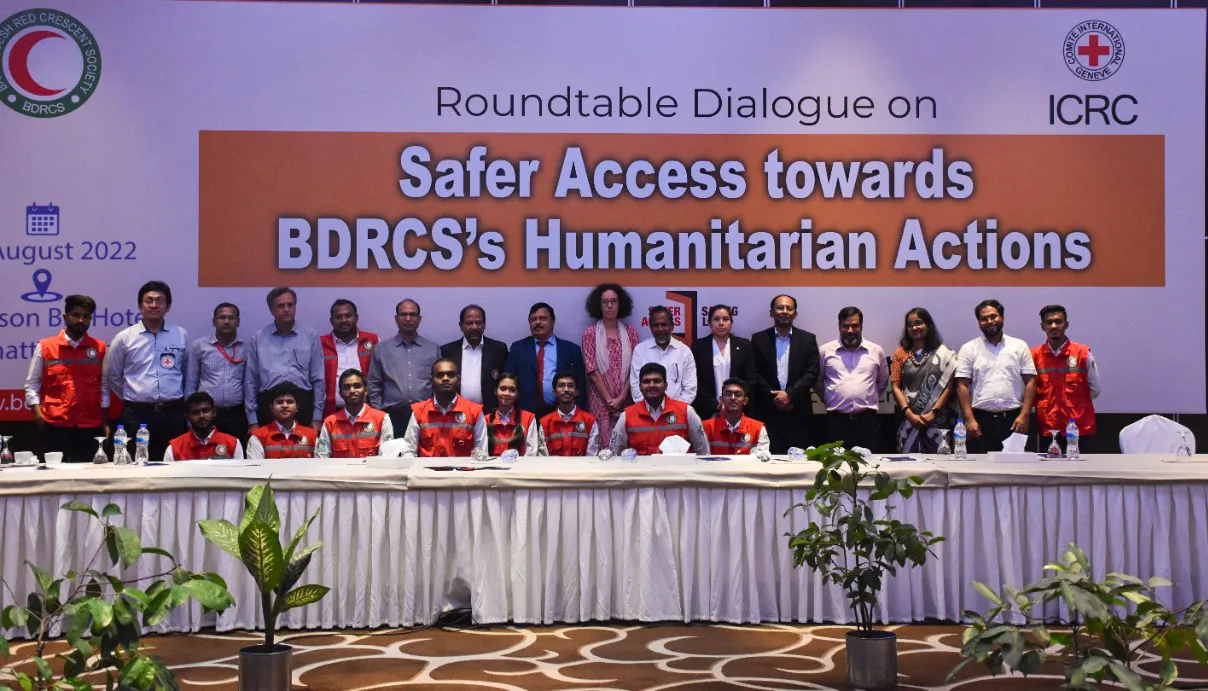
The ICRC and the Bangladesh Red Crescent Society (BDRCS) organized a round-table dialogue in Chattogram on improving safe access for staff and volunteers of the National Society.
Mentioning the ICRC's humanitarian operations in Bangladesh in 1971, which at the time were its largest ones worldwide, Katja Lorenz, head of the ICRC's delegation in Bangladesh, said, "We continue to work with the BDRCS to reach people in need of humanitarian support, and we firmly believe that they should be able to deliver unimpeded support in a safe and secure way."
Responding to the COVID-19 pandemic, BDRCS volunteers and staff worked tirelessly, especially in vaccination centres across Bangladesh. Appreciating their timely support, Brigadier General Mohammad Shamim Ahmed, director of Chattrogram Medical College Hospital, said, "However, in some cases, BDRCS volunteers were physically assaulted, since people did not understand their roles and responsibilities. Hence, events like this round table will help to promote the National Society's activities and mandate and enable it to get safer access in times of need."
 Civil surgeon of Chittagong sharing his thoughts on the importance of ensuring that National Society volunteers have safe access to affected communities while responding to an emergency. ICRC
Civil surgeon of Chittagong sharing his thoughts on the importance of ensuring that National Society volunteers have safe access to affected communities while responding to an emergency. ICRC
M A Malek, editor of Dainik Azadi, which is one of the oldest newspapers in Chattogram, emphasized the need to widely promote and publicize the large-scale humanitarian activities, mandate and auxiliary role of the BDRCS through media outlets. Participants also assured that they would work together to help the National Society carry out its humanitarian activities with increased acceptance among the communities.
Vice-chairman of Chattogram City Unit of BDRCS and managing board member of BDRCS, government officials, divisional police commissioner, divisional director (health), additional divisional commissioner, civil surgeon, fire service officials and representatives of several political parties, law enforcement agencies and media houses joined the programme.

